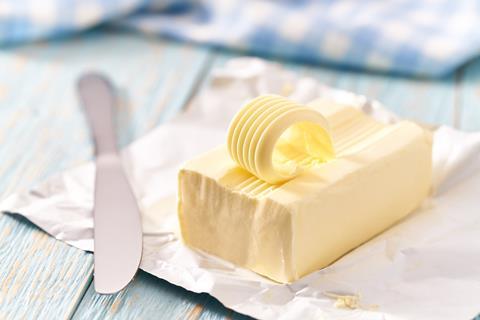
Inflation-driven volume declines in butters, spreads & margarine have slowed in the past year. But soaring prices are still taking their toll – and brands have suffered the most. Having risen in price by an average of 17.4%, they have taken a 10.6% hit to volumes.
In fact, only one top 20 brand has registered volume growth: I Can’t Believe It’s Not Butter. The Upfield margarine has seen an extra 1.6 million kilos go through tills. And there’s a clear reason why. With an average price per kilo of £3.08, I Can’t Believe is the category’s cheapest brand, clocking in at under half the branded average of £6.30.
The brand offers “incredible taste for outstanding value for money”, says Upfield. “Millions of shoppers are continuing to feel cost of living pressures and they know they can rely on I Can’t Believe It’s Not Butter as a cost-effective staple in their weekly basket.”
For the remainder of the category’s top 20, the picture is altogether less positive: 15 of them have suffered double-digit declines. The overall £49.5m gain for brands is down entirely to price inflation – the result of soaring farmgate milk prices caused by record production costs.
Many of the category’s big names have fallen victim to shoppers trading down to own label. It’s 5.9% cheaper than branded alternatives at an average of £5.93 per kilo – which has helped grow volumes 7.2%.
That pressure on brands further intensified in May, as Sainsbury’s dropped the price of its 250g own label salted and unsalted block butters by 5% to £1.89. Tesco, Aldi and Lidl immediately followed, taking 5% off the price of their £1.99 blocks too.
Tesco went on to cut its own label 250g block to £1.89 in the summer, and then to £1.79 as autumn approached – offering eye-catching value to cash-conscious shoppers.
A difficult first half for Lurpak
As Brits have traded down, market leader Lurpak has been the major victim. It’s said goodbye to 6.1 million kilos and £6.3m, as the only top 10 brand to lose money.
Stuart Ibberson, director of BSM at Lurpak owner Arla Foods, points to an especially difficult first half of the year for the brand – which felt obliged to roll out smaller packs during the summer in a bid to keep its price point “accessible”.
Lurpak blocks were downsized from 250g to 200g in April, and Lurpak Spreadable tubs went from 500g to 400g in July.
Its stablemate Anchor made the same packaging reduction to become more affordable. But in the face of a larger-than-average price hike of 18.4%, it’s lost 12.2% of its volumes.
“We saw the impact of the cost of living crisis and food inflation impacting shoppers’ purchasing behaviour,” concedes Ibberson.
That point is hammered home by Georgina Thomas, head of marketing for butters, spreads & oils at Saputo Dairy UK. “Purse-strings have been tight, and it’s clear this has had an impact on the category as a whole,” she argues.
It’s certainly had an impact on Saputo brands. Its biggest, Clover, is down 11% in volumes following a 22.3% price hike. Meanwhile, Country Life volumes slipped 5.4% as average price rose 20.3%.
Utterly Butterly, Saputo’s answer to I Can’t Believe It’s Not Butter, also had a difficult year. It’s one of only seven brands in the top 20 to decline in value, by 5.9%. Volumes fell by a far more dramatic 26.3% – as prices rose by a hefty 27.6%.
However, Thomas insists the dairy giant’s portfolio of brands “suits a variety of budgets, consumer needs and occasions”.
It’s confident enough in that assertion to stick to its strategy. Rather than following Arla’s lead and cutting pack sizes in response to inflationary pressures, Thomas stresses Saputo “held firm” on making a similar move – which would lead to “more packaging heading to landfill”.
Clearly inflation is top of mind for all big brands, though. Upfield UK marketing director Ian Hepburn says the company is “keenly aware of the cost of living pressures affecting millions of people”.
Those pressures have resulted in Upfield’s flagship spreads brand Flora taking a hit to volumes, albeit by a modest 3.4%. Flora ProActiv experienced a more pronounced 8.5% volume drop, while Stork lost a fifth of its volumes.
Consumers consider the dairy brands they buy
Upfield is now feeling more upbeat about prospects, following an ad campaign that urged shoppers to switch to Flora and ‘Skip the Cow’ in early 2023.
The push “encouraged people to stop and think about their dairy habits, driving record levels of awareness and consideration for Flora, with more households buying and loving the brand as a result”, Hepburn says.
He believes BSM is beginning to recover from the inflation-driven volume slump that defined much of 2023.
“From a category perspective, in the last 12 weeks, we have seen spreadable in growth, which suggests shoppers are trading back from private label spreadable back into brands,” he says.
“Inflation has been the major driver of value growth over the past year. However, in recent months this has eased and volume growth is starting to return.”
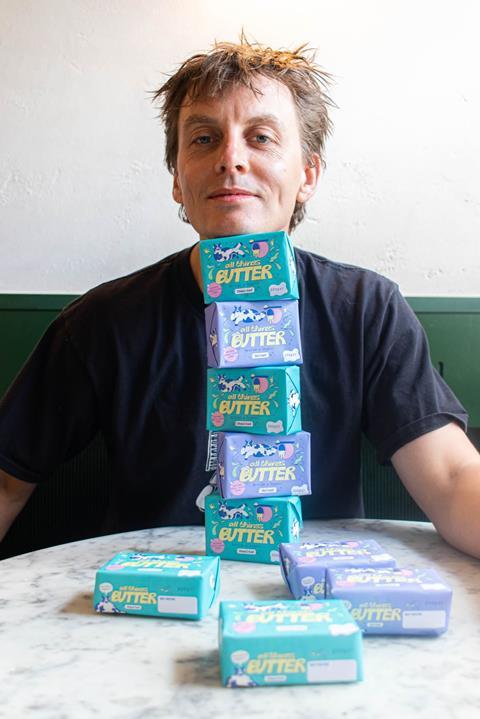
TikTok sensation All Things Butter secured its first major retail listing in October. The organic butter startup went on sale in Ocado the following month with a four-strong lineup. It was financed by £530k of pre-seed funding for the brand, which was born out of the success of Thomas Straker’s TikTok channel, also called All Things Butter. The chef & restaurateur (pictured) explored ways to enhance recipes using butter in videos shot during lockdowns.
Plant-based butter and spreads revival
Looking ahead to 2024, all the category’s main players are banking on a more favourable economic climate. With the support of renewed marketing activity, the aim is to encourage shoppers to trade up again.
Some are also banking on a revival in plant-based, which has suffered something of a slump in categories outside BSM due to its typically higher prices.
Upfield is already prepared. In September, it reversed a controversial 2020 decision to put buttermilk back into Flora Buttery, making the Flora brand 100% plant-based once again (see p115). More significantly, Arla revealed in June it would add a plant-based Lurpak variant in 2024.
The supplier is staying tight-lipped on details such as ingredients, launch date and listings. However, at the time of the summer announcement, Arla executive VP for Europe Peter Giørtz-Carlsen said the new product would “deliver on the high quality and good taste that Lurpak stands for”.
And he stressed the product would, like the dairy-based original, contain only natural ingredients with “no emulsifiers or stabilisers”. The variant would also offer the same versatility as standard Lurpak, be the “same kind of premium product” and “fit into the price positioning you see today”.
With all those appealing qualities, who needs dairy?
Top Launch 2023
Flora Buttery | Upfield
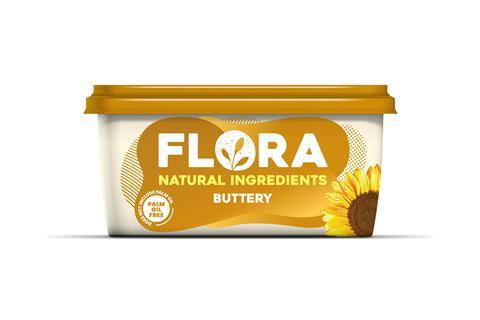
In October 2020, Flora reintroduced buttermilk to its Buttery variant. The decision, which came after 18 months of being dairy-free, outraged vegans. So this year, it went 100% plant-based once again. The revamped Flora Buttery variant – which hit mults in September – boasts an all-new recipe of rapeseed, sunflower and linseed oils, and a pack design that mirrors Flora’s alt-dairy Plant B+tter range. Crucially, the reformulated spread has retained its buttery taste, the brand promises.
Face off: Top Products Survey 2023 pits brands vs own-label
![Beans Face Off_RGB[18]](https://dmrqkbkq8el9i.cloudfront.net/Pictures/261x166/9/5/1/311951_beansfaceoff_rgb18_56926_crop.jpg)
It’s no longer a battle of the brands. The bigger battle, after two years of inflation, is between brands and own label. Who’s winning?
- 1
- 2
- 3
- 4
- 5
- 6
- 7
- 8
- 9
- 10
- 11
- 12
- 13
- 14
- 15
 Currently
reading
Currently
reading
Dairy - butters & spreads 2023: BSM suffers volume blow as prices rise
- 17
- 18
- 19
- 20
- 21
- 22
- 23
- 24
- 25
- 26
- 27
- 28
- 29
- 30
- 31
- 32
- 33
- 34
- 35
- 36
- 37
- 38
- 39
- 40
- 41
- 42
- 43
- 44
- 45
- 46







![Beans Face Off_RGB[18]](https://www.thegrocer.co.uk/Pictures/80x50/9/5/1/311951_beansfaceoff_rgb18_56926_crop.jpg)













































![Beans Face Off_RGB[18]](https://dmrqkbkq8el9i.cloudfront.net/Pictures/80x50/9/5/1/311951_beansfaceoff_rgb18_56926_crop.jpg)














































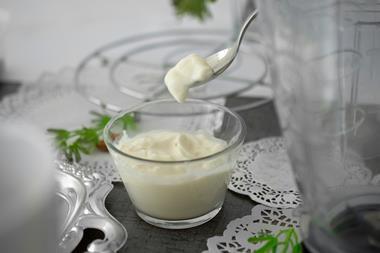

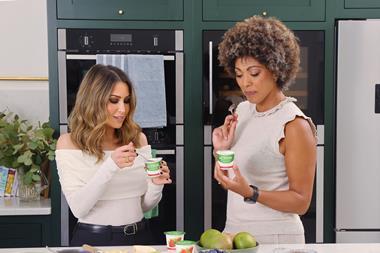







No comments yet